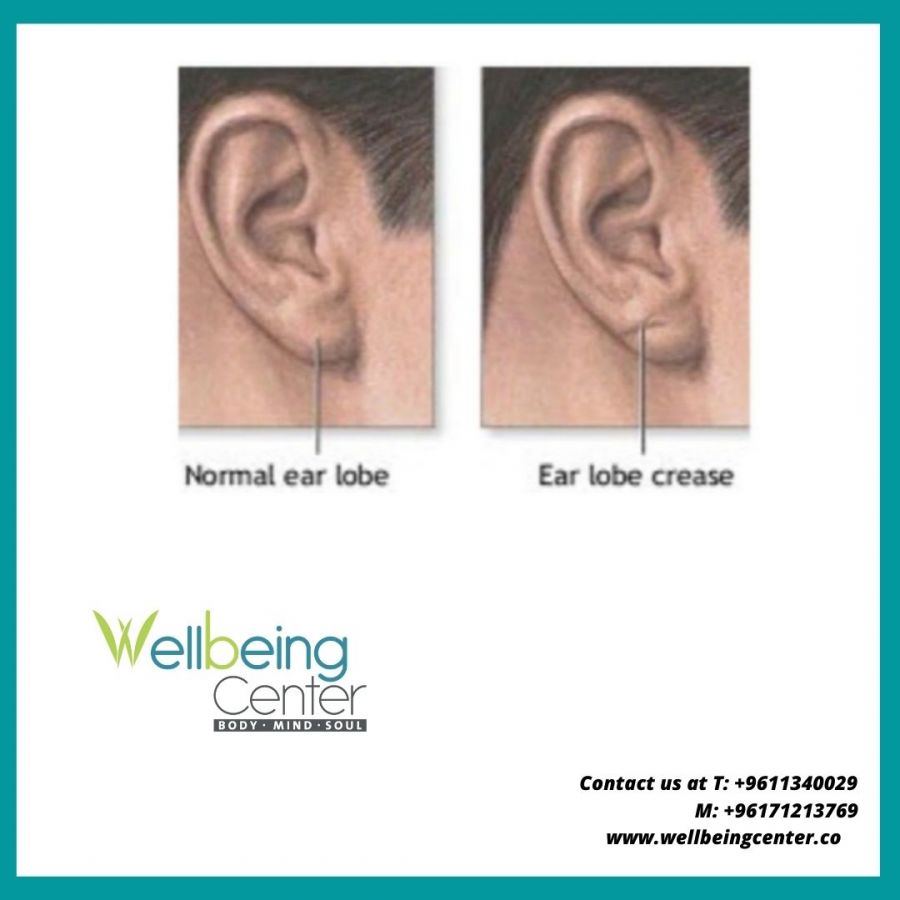Can The Shape of Your Earlobe Predict a Heart Attack?

To the surprise of many people, earlobe creases may indicate artery disease.
The possible association between ear lobe creases and coronary artery disease garnered attention when a study by Dr. William Elliott was published in The American Journal of Medicine more than a decade ago. Results of his study indicated that 19 out of 20 people with risk factors for coronary artery disease also had diagonally creased earlobes.
Dr. Elliott completed a larger study of 1,000 people admitted to the medical service of a large hospital that seemed to confirm his earlier studies. Of the 373 people with ear lobe creases, 275 (74%) had coronary artery disease and 98 (26%) did not. Of the 627 people with no ear lobe creases, 101 (16%) had coronary artery disease, and 526 (84%) did not.
An article published in the 1996 American Journal of Medicine stated that ear lobe creases were shown to be associated with higher rates of cardiac events in this study of 264 consecutive patients. The presence of a diagonal ear lobe crease has been recognized as a sign of cardiovascular disease.
Over 50 subsequent studies have been reported in the medical literature, with the largest involving 1,000 unselected patients. The ear lobe is richly vascularized, and a decrease in blood flow over an extended period of time is believed to result in collapse of the vascular bed. This leads to a diagonal crease.
An individual should be knowledgeable of all the risk factors that may contribute or be linked to heart disease.
- Family history of cardiovascular disease
- Personal history of myocardial infarction, peripheral artery disease, or coronary artery disease
- Obesity
- Diabetes
- Hypertension
- Thyroid disorders
- Stress
- Chronic illness (including chronic fatigue)
- Diets high in bad saturated and trans fats
- Sedentary lifestyle
- Use of alcohol, nicotine, drugs (including certain medications)
- Use of oral contraceptives
- Hormonal imbalances (estradiol, cortisol, insulin, melatonin)
- Post-menopause
- Renal disease
- Earlobe crease
A review of the medical research strongly documents the need for all individuals suspect of having heart disease to be thoroughly evaluated. If you have been evaluated and been told that your cholesterol and blood pressure were within acceptable limits, you may get a false sense of security. When in reality, you may be on the brink of a heart attack or stroke.
The following "markers" should be part of comprehensive cardiovascular screening.
Cardiovascular disease claims as many lives as the next 8 leading causes of death combined, including cancer, accidents and AIDS. No other modern illness comes close to reaping such a grim toll on human life:
Clinical Markers Include:
- Total Cholesterol
- LDL
- HDL
- Homocysteine
- Triglycerides
- Lipoprotein(a)
- Apolipoprotein A-1
- Apolipoprotein B
- Ratio of Apo B/Apo A-1
- Fibrinogen
- C-Reactive Protein
At Wellbeing Center, we help you with your comprehensive, personalized care.
